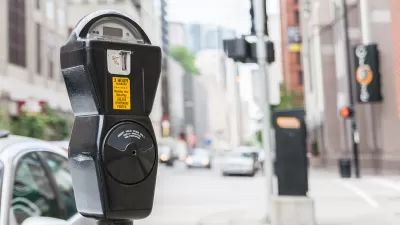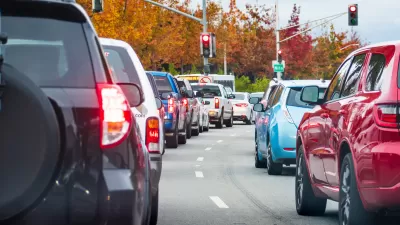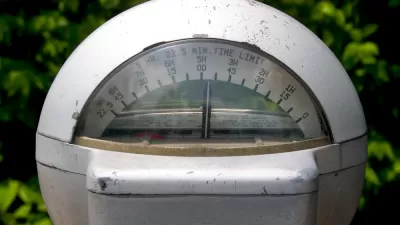Contrary to many motorists' fears, San Francisco's demand-based parking pricing has reduced overall average hourly rates and ticket citations.
When San Francisco first installed its SFpark meters — devices that would increase hourly parking rates based on demand — many motorists complained that it was one more way to gouge drivers for extra dollars. In fact, the program has done the exact opposite, reports .
"Since taking effect in April 2011, average hourly rates have dropped by 14 cents from $2.73 to $2.59 at the 7,000 SFpark meters. Overall, 17 percent of those meters offer hourly rates of $1 or less — prices that are significantly cheaper than the ones offered at the 22,000 older meters. And 6 percent of SFpark meters go for as cheap as 25 cents an hour, according to data from the San Francisco Municipal Transportation Agency, which oversees parking policies in The City. The drop in prices for on-street parking meters coincides with a 20 percent rate decrease in SFMTA-run garages.
"Donald Shoup, a UCLA professor whose theories on parking were instrumental in developing the SFpark program, said he expected prices at meters to rise in the first year, given the demand for spaces in San Francisco. He said the drop in meter rates is proof that the agency is concerned about responsible parking management and not price-gouging policies. 'I don’t understand how anyone can keep parroting that this is a money grab,' Shoup said."
"Because the SFpark meters provide more payment options for motorists, ticket citations have decreased," adds Reisman.
FULL STORY: SFpark hourly meters actually saves motorists money

Alabama: Trump Terminates Settlements for Black Communities Harmed By Raw Sewage
Trump deemed the landmark civil rights agreement “illegal DEI and environmental justice policy.”

Study: Maui’s Plan to Convert Vacation Rentals to Long-Term Housing Could Cause Nearly $1 Billion Economic Loss
The plan would reduce visitor accommodation by 25% resulting in 1,900 jobs lost.

Planetizen Federal Action Tracker
A weekly monitor of how Trump’s orders and actions are impacting planners and planning in America.

Study Links Covid and Poor Driving
The effects of the virus, including ‘brain fog,’ can make driving more difficult and dangerous.

Waymo Gets Permission to Map SF’s Market Street
If allowed to operate on the traffic-restricted street, Waymo’s autonomous taxis would have a leg up over ride-hailing competitors — and counter the city’s efforts to grow bike and pedestrian on the thoroughfare.

Parklet Symposium Highlights the Success of Shared Spaces
Parklets got a boost during the Covid-19 pandemic, when the concept was translated to outdoor dining programs that offered restaurants a lifeline during the shutdown.
Urban Design for Planners 1: Software Tools
This six-course series explores essential urban design concepts using open source software and equips planners with the tools they need to participate fully in the urban design process.
Planning for Universal Design
Learn the tools for implementing Universal Design in planning regulations.
Caltrans
Smith Gee Studio
Institute for Housing and Urban Development Studies (IHS)
City of Grandview
Harvard GSD Executive Education
Toledo-Lucas County Plan Commissions
Salt Lake City
NYU Wagner Graduate School of Public Service





























